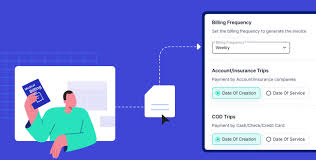In today’s fast-paced healthcare industry, patient billing software plays a crucial role in ensuring smooth financial operations. These systems are designed to manage patient billing processes, streamline administrative tasks, and enhance the overall patient experience. With the growing complexity of medical billing and the increasing demand for transparency, healthcare providers need robust billing systems more than ever. In this article, we will explore the key features of patient billing systems that make them indispensable for modern healthcare facilities.
Comprehensive Billing and Invoicing
One of the primary functions of a patient billing system is comprehensive billing and invoicing. This feature ensures that all patient charges, from initial consultation fees to treatment costs, are accurately recorded and billed. A good billing system generates detailed invoices that outline every service provided, making it easier for patients to understand their charges. Furthermore, these systems often support electronic billing, which reduces paperwork and speeds up the payment process. By providing clear and precise billing information, healthcare providers can minimize disputes and enhance patient satisfaction.
Insurance Verification and Claims Management
Handling insurance claims can be a daunting task for any healthcare provider. A robust patient billing system simplifies this process through efficient insurance verification and claims management. These systems automatically verify patients’ insurance coverage before services are rendered, ensuring that providers are aware of any coverage limitations or requirements. Additionally, billing systems streamline the claims submission process, reducing the likelihood of errors and claim rejections. By automating these tasks, healthcare providers can save time, reduce administrative burdens, and improve their cash flow.
Payment Processing and Financial Reporting
Another critical feature of patient billing systems is payment processing. These systems offer multiple payment options, including credit card payments, electronic fund transfers, and online payment portals, catering to the diverse preferences of patients. Integrated payment processing not only facilitates timely payments but also enhances the overall patient experience by providing convenience. Moreover, patient billing systems generate comprehensive financial reports that provide insights into the facility’s financial health. These reports help administrators make informed decisions, identify revenue trends, and ensure compliance with financial regulations.
Patient Portals and Communication Tools
Modern patient billing systems often include patient portals and communication tools that improve patient engagement and transparency. Patient portals allow individuals to access their billing information, view payment history, and make payments online. These portals can also provide reminders for upcoming payments and notifications about insurance claims, keeping patients informed at all times. Additionally, communication tools within the billing system enable healthcare providers to send automated messages regarding billing updates, policy changes, or payment due dates. By fostering better communication, these features contribute to a more positive patient experience and timely payments.
Security and Compliance
In the realm of healthcare, security and compliance are paramount. Patient billing systems are designed with robust security measures to protect sensitive patient information from unauthorized access and breaches. Features such as encryption, secure access controls, and regular security audits ensure that data remains confidential and secure. Moreover, these systems help healthcare providers comply with regulations such as the Health Insurance Portability and Accountability Act (HIPAA). Compliance features include secure data storage, audit trails, and adherence to billing and coding standards. By maintaining high levels of security and compliance, patient billing systems safeguard patient trust and institutional integrity.
Integration with Electronic Health Records (EHR)
A vital aspect of patient billing systems is their ability to integrate seamlessly with Electronic Health Records (EHR). This integration ensures that all patient data, including medical history, treatments, and billing information, is consolidated in one system. Such synchronization eliminates the need for manual data entry, reducing errors and enhancing efficiency. Healthcare providers can access comprehensive patient profiles, enabling them to provide more personalized and informed care. Additionally, integrated systems facilitate smoother billing processes by automatically updating patient accounts with the latest medical and treatment details, thereby improving accuracy and reducing administrative workloads.
Scalability and Customization
Patient billing systems offer scalability and customization to meet the varying needs of healthcare providers, from small clinics to large hospitals. These systems can be tailored to handle the specific billing requirements of different medical specialties, ensuring that providers can manage their unique billing processes effectively. Scalability ensures that as a healthcare facility grows, its billing system can expand to accommodate increasing patient volumes and additional services without compromising performance. Customization options allow providers to set specific billing rules, generate specialized reports, and adapt the system to fit their operational workflows. By offering these flexible features, patient billing systems ensure that healthcare providers can maintain efficient billing practices regardless of their size or complexity.
Patient Billing Systems
Patient billing systems are indispensable tools for modern healthcare providers, offering a range of features that streamline billing processes, enhance patient engagement, and ensure compliance with regulations. From comprehensive billing and invoicing to robust security measures, these systems are designed to address the unique challenges of the healthcare industry. By adopting an efficient patient billing system, healthcare providers can improve their financial operations, reduce administrative burdens, and provide better service to their patients. In an industry where accuracy and transparency are vital, patient billing systems stand out as essential components for success.

